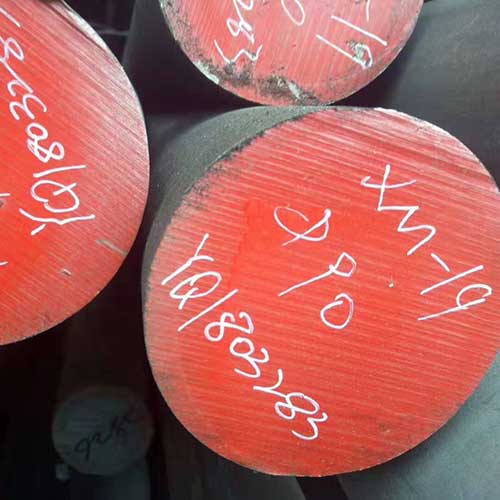XM-19 (NITRONIC 50) Austenitic stainless steel (Tech Center of Shanghai HY Industry Co., Ltd)
 XM-19 (NITRONIC 50) is an austenitic stainless steel with high strength and good corrosion resistance. Compared with 304 and 316 stainless steel, its yield strength is nearly doubled, and its corrosion resistance is also increased by 317L. XM-19 (NITRONIC 50) stainless steel remains non-magnetic even after strict cold treatment. Good strength can be maintained at high and sub-zero temperatures.
XM-19 (NITRONIC 50) is an austenitic stainless steel with high strength and good corrosion resistance. Compared with 304 and 316 stainless steel, its yield strength is nearly doubled, and its corrosion resistance is also increased by 317L. XM-19 (NITRONIC 50) stainless steel remains non-magnetic even after strict cold treatment. Good strength can be maintained at high and sub-zero temperatures.
General trade name
XM-19 (NITRONIC 50) stainless steel
Product standards
AMS 5764, ASTM A 193, ASTM A 262, ASTM A 276, ASTM A 276 Condition A, ASTM A 276 Condition S, ASTM A 479, EN 1.3964, ISO 15156-3, NACE MR0175, UNS S20910, Werkstoff 1.3964
main feature
-
Heat Exchange-XM-19 (NITRONIC 50) stainless steel has many of the same thermal change characteristics as other stainless steel grades. The main advantage of other types, mainly 316, is its ability to maintain neutrality at sub-zero temperatures. This is very helpful and useful for industries that find themselves in a cold or extremely cold climate. It also helps that even under these conditions, XM-19 (NITRONIC 50) stainless steel is still slightly stronger than 316.
-
Corrosion resistance-Another aspect of XM-19 (NITRONIC 50) stainless steel that can boast over 316 is that it can withstand more corrosion. This corrosion resistance makes it very suitable for marine environments. They can withstand high temperature changes and at the same time prevent natural corrosion in fresh water and salt water environments, making them one of the high-quality stainless steels. Most stainless steels may develop stress corrosion cracking in a hot chloride environment under certain conditions. However, the crack resistance of XM-19 (NITRONIC 50) stainless steel is between 304 and 316. Whether under annealing, high strength or cold drawn conditions, XM-19 (NITRONIC 50) stainless steel has low cracking sensitivity.
-
High-strength austenitic alloy
-
Low magnetic permeability
What are the advantages of choosing XM-19 (NITRONIC 50) material than austenitic stainless steel?
-
Compared with 316L alloy, it contains increased chromium and molybdenum, thereby improving corrosion resistance. The pitting resistance equivalent number (PREN) of 316L alloy is 25, while the PREN of XM-19 (NITRONIC 50) stainless steel is 34. Super duplex stainless steel has a PREN> 40, but has different mechanical properties. This is the main reason why XM-19 (NITRONIC 50) stainless steel was chosen instead of super duplex alloy. In view of its ability to resist sulfide stress cracking, it is listed as acidic application in NACE MR 0175.
-
In order to maintain the good mechanical properties of austenitic stainless steel, such as ductility and toughness at high and low temperatures, and ease of welding and manufacturing, a large increase in nickel content is required. If this nickel is not added, its microstructure will tend to be a dual-phase product, even with higher strength, but lower toughness and toughness. However, this does mean that XM-19 (NITRONIC 50) stainless steel is a more expensive alloy than duplex and super duplex stainless steel.
-
Like some super duplex stainless steels, it also uses increased nitrogen content to increase strength, so it is sometimes called a nitrogen-strengthened alloy. The addition of manganese also improves strength through solid solution strengthening.

